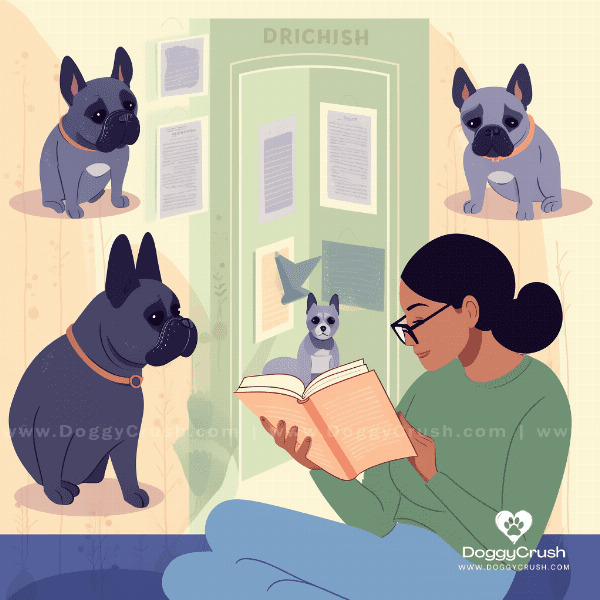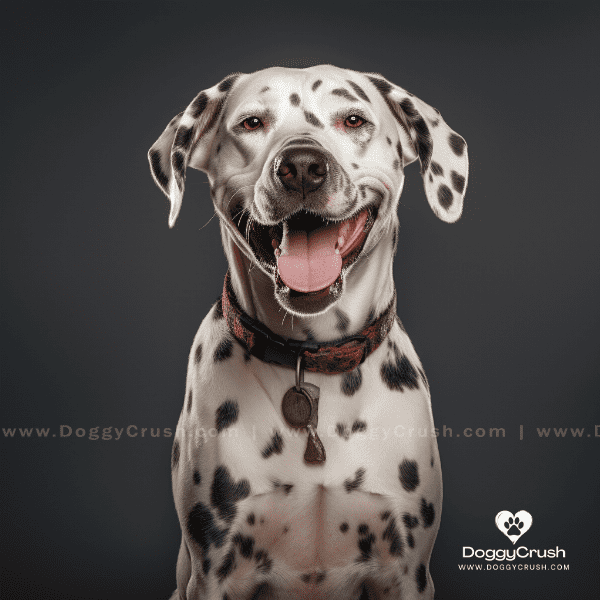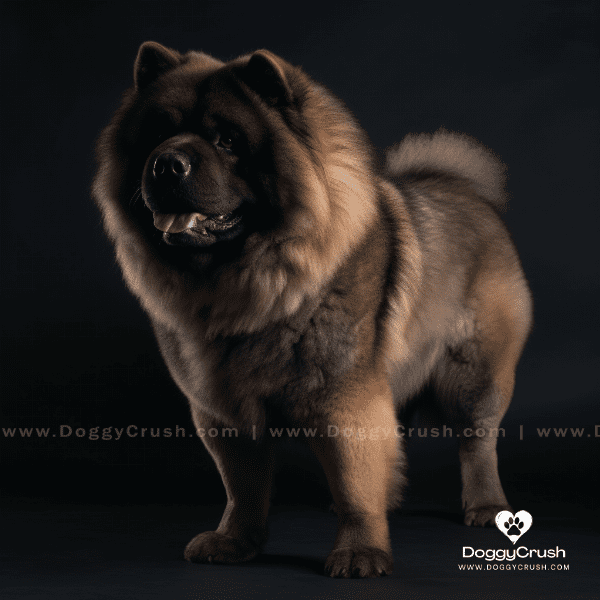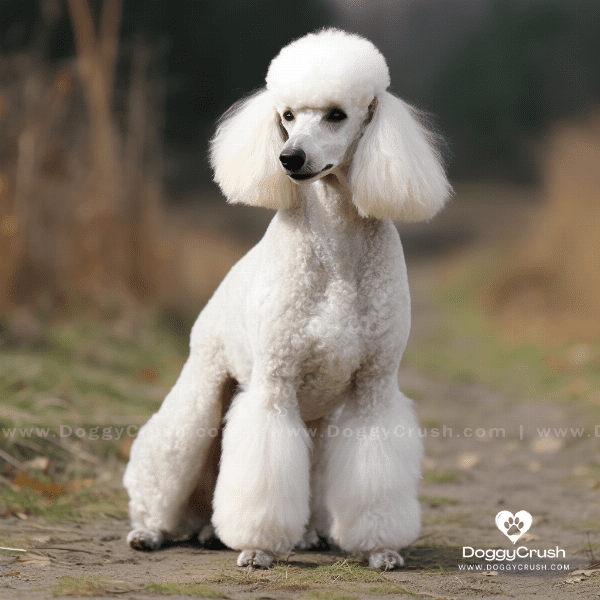Table of Contents
Origin and History
French Bulldogs, also known as “Frenchies,” are a popular small-sized breed of dog that originated in France in the 1800s. The breed was created by crossing toy Bulldogs, which were popular with English lace workers, with local ratters in Paris. The resulting breed quickly became popular among the French bourgeoisie, who found them to be excellent lapdogs and companions.
Ancestors of French Bulldogs
French Bulldogs share their ancestors with English Bulldogs, which were originally bred for bull-baiting. However, as bull-baiting became outlawed in England, breeders focused on developing a smaller, more docile version of the Bulldog that could serve as a companion dog. This led to the creation of the toy Bulldog, which was then taken to France and crossbred with local ratters.
Popularity of French Bulldogs
French Bulldogs quickly gained popularity in France and became the favorite breed of the Parisian elite. They were even the subject of many paintings by famous artists such as Toulouse-Lautrec and Edgar Degas. Frenchies made their way to the United States in the late 1800s and quickly gained popularity as well.
Today, French Bulldogs are one of the most popular breeds in the world, thanks to their affectionate and playful personalities, as well as their distinctive appearance. They have become especially popular in urban areas, where their small size and adaptability make them ideal apartment dogs.
Wrapping Up
In summary, French Bulldogs have a fascinating origin and history that spans several centuries. From their humble beginnings as a crossbreed in France to their current status as one of the most beloved Dog breeds in the world, Frenchies have come a long way. Their unique characteristics and charming personalities have made them a favorite among dog lovers everywhere.
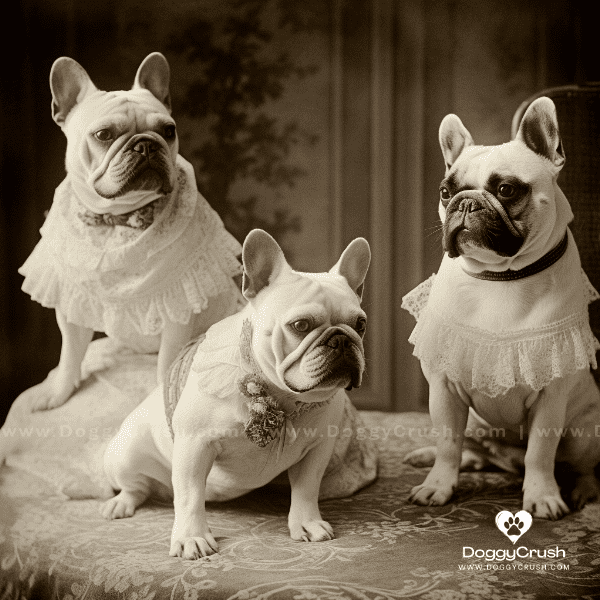
Physical Characteristics
French Bulldogs are a small-sized breed of dog with a muscular and compact build. They have a distinctive appearance that sets them apart from other breeds, including a short, smooth coat and a unique “bat ear” shape.
Body Structure
French Bulldogs are a brachycephalic breed, which means they have a short, wide head and a flat face. This structure can sometimes lead to respiratory issues and makes it difficult for them to regulate their body temperature. Frenchies have a stocky and muscular build, with a broad chest and a short, powerful neck. They typically weigh between 16-28 pounds and stand 11-12 inches tall at the shoulder.
Coat and Color
French Bulldogs have a short, smooth coat that is easy to maintain. Their coat comes in a variety of colors, including fawn, brindle, white, and black. Some Frenchies may also have a combination of these colors.
Unique Features
One of the most distinctive features of French Bulldogs is their bat-like ears. Their ears are wide at the base and rounded at the tips, giving them a unique and adorable appearance. Frenchies also have a square-shaped head with a wrinkled forehead and a short, broad muzzle.
Wrapping Up
In summary, French Bulldogs have a unique and distinctive appearance that sets them apart from other breeds. Their short, smooth coat and bat-like ears make them instantly recognizable, and their muscular build gives them a powerful and sturdy frame. Despite their unique appearance, Frenchies can sometimes experience health issues related to their body structure, so it’s important to keep them healthy and active.

Temperament and Personality Traits
French Bulldogs are known for their friendly and affectionate personalities. They are social dogs that enjoy spending time with their owners and are great with children. Here are some key traits that define their temperament:
Affectionate and Loyal
French Bulldogs are loyal and devoted to their owners. They thrive on attention and love to cuddle and snuggle with their family members. They are known for being extremely affectionate and will often follow their owners around the house.
Playful and Energetic
Despite their small size, French Bulldogs are quite energetic and playful. They love to play and run around, but they don’t require a lot of exercise. A short walk or a few play sessions each day is usually enough to keep them happy and healthy.
Alert and Protective
Frenchies may be small, but they have a big personality. They are alert and will often bark to let their owners know if someone is at the door or if they sense any danger. They make great watchdogs and will protect their owners if they feel threatened.
Stubborn but Trainable
French Bulldogs are known for their stubbornness, which can sometimes make training a challenge. However, with patience and persistence, they can be trained to obey commands and follow rules. Positive reinforcement techniques, such as treats and praise, work best with this breed.
Good with Children
French Bulldogs are great with children and make excellent family pets. They are gentle and patient with kids, and their small size makes them ideal for apartment living. However, as with any breed, it’s important to supervise interactions between children and dogs to prevent any accidents.
Wrapping Up
In summary, French Bulldogs have a friendly and affectionate personality that makes them a great companion for families and individuals alike. They are playful and energetic, but they also enjoy cuddling and spending time with their owners. They are alert and protective, but they are also gentle and patient with children. With proper training and socialization, Frenchies make wonderful pets that will bring joy and love into your life.

Exercise and Training Needs
French Bulldogs are a low-energy breed that doesn’t require a lot of exercise. However, it’s still important to provide them with daily exercise to keep them healthy and prevent them from becoming overweight. Here’s what you need to know about their exercise and training needs:
Exercise Requirements
Frenchies are a great choice for apartment living because they don’t need a lot of space to run around. A daily walk or two 15-minute play sessions are usually enough to keep them happy and healthy. However, it’s important to avoid exercising them in extreme temperatures or during the hottest parts of the day, as their flat face can make it difficult for them to regulate their body temperature.
Training Tips
Training a French Bulldog can be a challenge because they are known for their stubbornness. However, with patience and positive reinforcement techniques, they can be trained to follow basic commands and house rules. Consistency is key when training this breed, and it’s important to use treats and praise to reward good behavior.
Socialization
Socialization is important for all breeds, and French Bulldogs are no exception. It’s important to expose them to a variety of people, animals, and environments from a young age to help them develop into well-rounded and confident dogs. Early socialization can also help prevent behavioral issues, such as aggression and anxiety.
Mental Stimulation
Frenchies are intelligent dogs that thrive on mental stimulation. Puzzle toys, training games, and interactive toys can help keep them mentally stimulated and prevent boredom. Mental stimulation is especially important for Frenchies that are left alone for long periods of time, as it can help prevent destructive behavior.
Wrapping Up
In summary, French Bulldogs are a low-energy breed that doesn’t require a lot of exercise, but they still need daily walks and play sessions to stay healthy and happy. Training a French Bulldog can be a challenge, but positive reinforcement techniques and consistency can help them learn basic commands and house rules. Socialization and mental stimulation are also important for this breed, and can help prevent behavioral issues and keep them mentally and emotionally healthy.
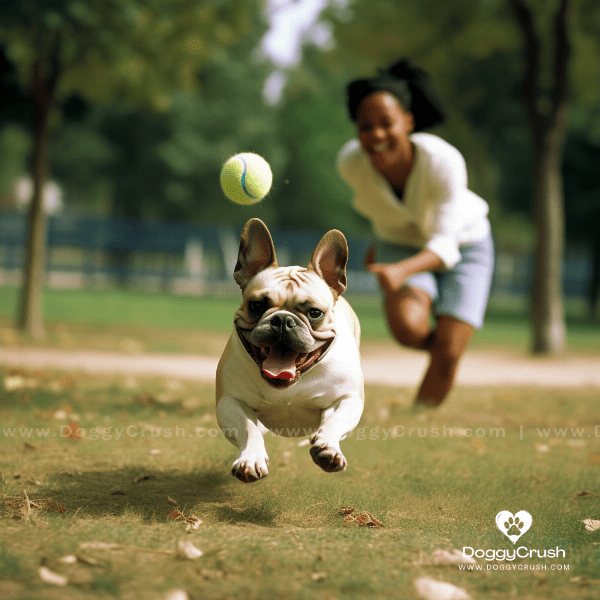
Grooming Requirements
Bathing
Frenchies don’t need to be bathed frequently, but they should be bathed every three to four months or as needed. It’s important to use a mild dog shampoo and to avoid getting water in their ears, as this can lead to infections.
Brushing
French Bulldogs have a short, smooth coat that doesn’t shed a lot. However, they do shed seasonally, and regular brushing can help remove loose hair and prevent matting. A weekly brushing with a soft bristle brush is usually enough to keep their coat looking shiny and healthy.
Ear Cleaning
Because of their bat-like ears, French Bulldogs are prone to ear infections. It’s important to clean their ears regularly to prevent infections and to check for signs of redness or irritation. Use a vet-approved ear cleaner and a cotton ball or soft cloth to gently clean their ears.
Nail Trimming
Frenchies have small, compact feet with short nails. It’s important to trim their nails regularly to prevent them from growing too long and causing discomfort or pain. If you can hear their nails clicking on the floor, it’s time for a trim.
Teeth Cleaning
Like all dogs, French Bulldogs are prone to dental issues such as tartar buildup and gum disease. It’s important to brush their teeth regularly with a dog-safe toothpaste and toothbrush to prevent these issues. Dental chews and toys can also help keep their teeth clean.
Wrapping Up
In summary, French Bulldogs have a short, smooth coat that is easy to maintain. Regular grooming, including bathing, brushing, ear cleaning, nail trimming, and teeth cleaning, is important to keep them healthy and prevent health issues. With proper grooming and care, your French Bulldog can look and feel their best.
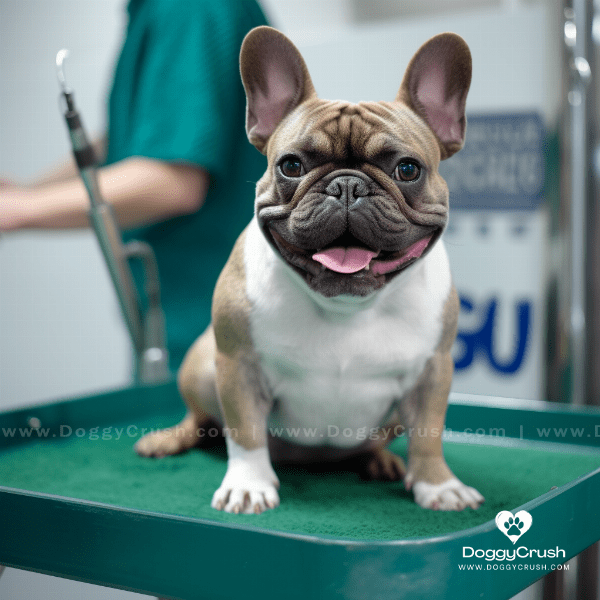
Health Concerns and Lifespan
French Bulldogs are generally healthy dogs, but like all breeds, they are prone to certain health issues. Here’s what you need to know about their health concerns and lifespan:
Common Health Issues
One of the biggest health concerns for French Bulldogs is their brachycephalic structure. This can lead to respiratory issues and make it difficult for them to regulate their body temperature. They are also prone to skin allergies, eye infections, and ear infections. Additionally, Frenchies are more likely to develop spinal issues and hip dysplasia than some other breeds.
Lifespan
The average lifespan of a French Bulldog is between 10 and 12 years. However, with proper care and attention, some Frenchies can live up to 14 years or more.
Health Testing
If you’re considering getting a French Bulldog, it’s important to choose a reputable breeder who conducts health testing on their breeding dogs. Health testing can help identify potential health issues and ensure that you’re getting a healthy puppy.
Veterinary Care
Regular veterinary care is important for all dogs, and French Bulldogs are no exception. It’s important to take your Frenchie to the vet for regular checkups and to address any health concerns as soon as they arise.
Obesity
French Bulldogs are prone to obesity, which can lead to a variety of health issues, including joint problems and respiratory issues. It’s important to keep them at a healthy weight through a balanced diet and regular exercise.
Wrapping Up
In summary, French Bulldogs are generally healthy dogs, but they are prone to certain health issues. It’s important to be aware of these issues and to take steps to prevent them through proper care and attention. With regular veterinary care, a balanced diet, and regular exercise, your Frenchie can live a long and healthy life.

Diet and Nutrition
French Bulldogs have a small stature and a low energy level, which means they don’t require a lot of food to maintain a healthy weight. However, it’s important to provide them with a balanced diet that meets their nutritional needs. Here’s what you need to know about their diet and nutrition:
Feeding Schedule
Adult French Bulldogs typically eat two small meals per day, while puppies may require three to four meals per day. It’s important to feed them at the same time each day to establish a routine and to prevent overeating.
Portion Size
French Bulldogs have a tendency to overeat, which can lead to obesity and other health issues. It’s important to measure their food portions carefully and to avoid giving them table scraps or treats that are high in calories.
Nutritional Requirements
French Bulldogs require a balanced diet that is rich in protein, carbohydrates, and essential fatty acids. Look for high-quality dog food that is specifically formulated for small breeds, and avoid food that contains fillers or artificial ingredients.
Water Intake
It’s important to provide your Frenchie with access to clean, fresh water at all times. This is especially important during hot weather or when they are exercising, as they can become dehydrated quickly.
Treats
French Bulldogs love treats, but it’s important to choose treats that are low in calories and made with high-quality ingredients. Treats should only make up a small percentage of their overall diet.
Wrapping Up
In summary, French Bulldogs require a balanced diet that meets their nutritional needs without overfeeding them. It’s important to establish a feeding routine and to measure their food portions carefully. Look for high-quality dog food that is specifically formulated for small breeds, and avoid food that contains fillers or artificial ingredients. With proper nutrition and care, your Frenchie can maintain a healthy weight and live a long and happy life.

Living with a French Bulldog
French Bulldogs make great pets for families and individuals alike. They are friendly, affectionate, and easy to care for. Here are some tips for living with a French Bulldog:
Living Arrangements
French Bulldogs are a great choice for apartment living because of their small size and low energy level. However, they can adapt to any living situation as long as they receive daily exercise and attention from their owners.
Training and Socialization
Training and socialization are important for all dogs, and French Bulldogs are no exception. They can be stubborn, but with patience and positive reinforcement techniques, they can be trained to follow basic commands and house rules. Early socialization is also important to prevent behavioral issues and to help them feel comfortable around people and other animals.
Grooming and Health Care
French Bulldogs have a short, smooth coat that is easy to maintain. However, they do require regular grooming to keep their coat and skin healthy. They also require regular veterinary care, including checkups, vaccinations, and dental care.
Bonding with Your Frenchie
French Bulldogs are affectionate dogs that thrive on attention and love. They love to cuddle and snuggle with their owners, and they enjoy spending time with their family members. Bonding with your Frenchie through play, training, and snuggles can help strengthen your relationship and make them feel more comfortable and secure in their home.
Consider Adopting
If you’re considering getting a French Bulldog, consider adopting from a rescue or shelter. Adopting can give a deserving dog a second chance at a happy life, and it can also be a rewarding experience for you as an owner.
Wrapping Up
In summary, French Bulldogs make great pets for families and individuals alike. They are friendly, affectionate, and easy to care for. With proper training, socialization, and care, your Frenchie can live a long and happy life by your side.

Common Misconceptions
There are several common misconceptions about French Bulldogs that can lead to misunderstandings about their breed. Here are some of the most common misconceptions and the truth behind them:
Misconception: French Bulldogs are aggressive
French Bulldogs are not an aggressive breed. They are actually known for their friendly and affectionate personalities. However, like all breeds, they can become aggressive if they are not properly trained and socialized.
Misconception: French Bulldogs are high-energy dogs
French Bulldogs have a low energy level and don’t require a lot of exercise. They are a great choice for apartment living because of their small size and low exercise needs.
Misconception: French Bulldogs are easy to train
French Bulldogs can be stubborn and difficult to train. They require patience and positive reinforcement techniques to learn basic commands and house rules.
Misconception: French Bulldogs can’t swim
While it’s true that French Bulldogs are not natural swimmers, they can learn to swim with proper training and supervision. It’s important to keep them safe around water and to provide them with a life jacket if necessary.
Misconception: French Bulldogs can’t tolerate cold weather
French Bulldogs have a short, smooth coat that doesn’t provide a lot of insulation, but they can tolerate cold weather as long as they are protected from the elements. A sweater or coat can help keep them warm in colder weather.
Wrapping Up
In summary, there are several common misconceptions about French Bulldogs that can lead to misunderstandings about their breed. Frenchies are not aggressive, have a low energy level, can be difficult to train, can learn to swim, and can tolerate cold weather with proper protection. Understanding the truth behind these misconceptions can help you make an informed decision about whether a French Bulldog is the right breed for you.

Choosing the Right French Bulldog for You
Choosing the right French Bulldog for you and your family requires careful consideration and research. Here are some factors to consider when choosing a Frenchie:
Breeder or Rescue
Decide whether you want to get a French Bulldog from a breeder or rescue. Adopting from a rescue or shelter can give a deserving dog a second chance at a happy life, while purchasing from a reputable breeder can ensure that you’re getting a healthy and well-socialized puppy.
Age
Consider the age of the French Bulldog you want to bring home. Puppies require more attention and training, while adult dogs may already be trained and socialized. Older dogs may also have health issues that require ongoing care.
Gender
Decide whether you want a male or female French Bulldog. While there is no significant difference in temperament between males and females, males may be slightly larger and more active than females.
Personality
French Bulldogs have unique personalities, and it’s important to choose a dog that matches your lifestyle and personality. Some Frenchies are more outgoing and social, while others may be more reserved and independent.
Health
Choose a French Bulldog that is healthy and free from any genetic health issues. It’s important to choose a reputable breeder or rescue that conducts health testing on their breeding dogs.
Compatibility
Consider whether a French Bulldog is compatible with your living situation, lifestyle, and family. Frenchies are a great choice for apartment living, but they may not be suitable for families with young children or other pets.
Wrapping Up
In summary, choosing the right French Bulldog for you and your family requires careful consideration and research. Factors to consider include whether to adopt or purchase from a breeder, age, gender, personality, health, and compatibility. With careful consideration and research, you can find the perfect French Bulldog to fit your lifestyle and bring joy to your home.
